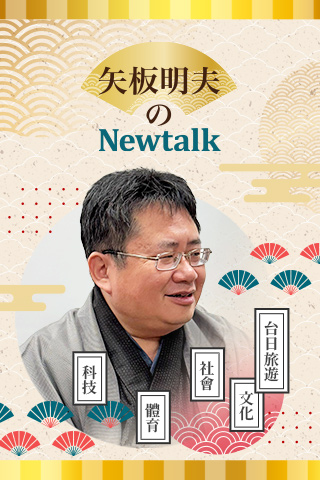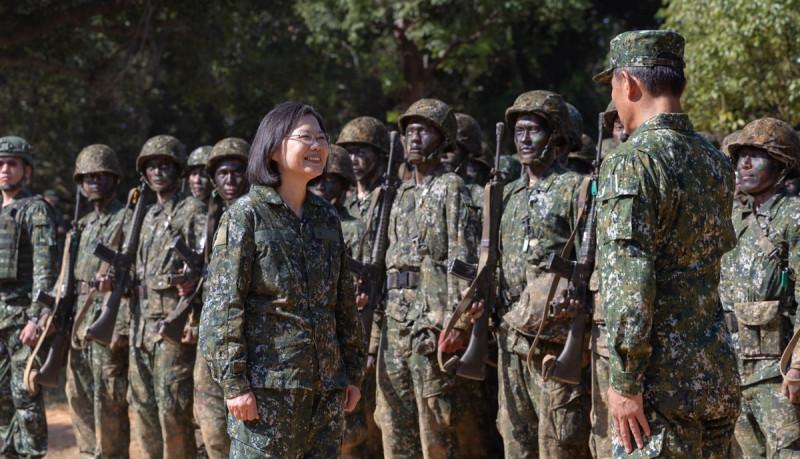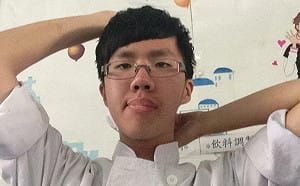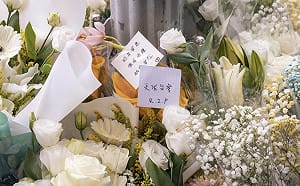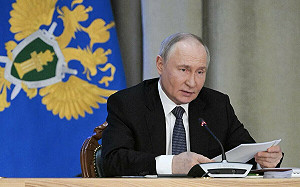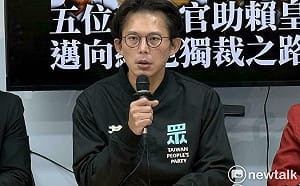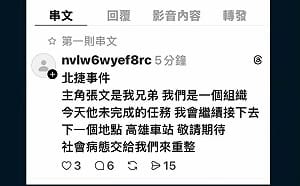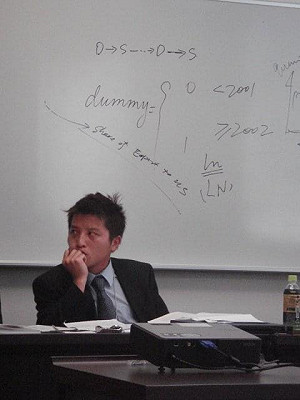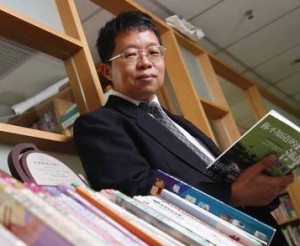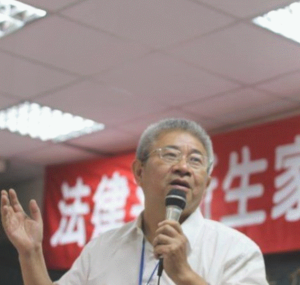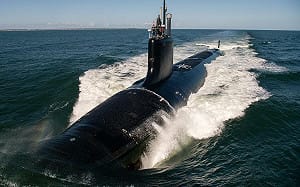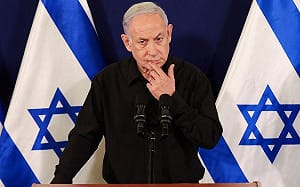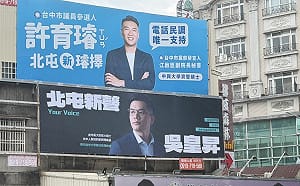總統蔡英文日前接受《紐約時報》「DealBook Summit」專訪。對於中國國家主席習近平是否可能發動武力犯台,蔡英文說,「目前中國領導階層面臨來自內部的極大挑戰。我認為現在也許不是他們考慮大規模犯台的時機」。至於是否憂慮美國內部辯論是否繼續援助,並也擔心這也影響對台灣的支持?蔡英文則說,「當然,我們密切關注」。
「DealBook Summit」係紐約時報年度盛事,邀請全球最具影響力之政治、企業及文化領袖與菁英與會分享經驗及看法。該峰會於美東時間11月29日在紐約林肯表演中心舉行,美國副總統賀錦麗(Kamala Harris)、前美國眾議院議長麥卡錫(Kevin McCarthy)、特斯拉創辦人馬斯克(Elon Musk)及輝達創辦人暨執行長黃仁勳等均受邀出席峰會。總統府也於今(30)日上午公布專訪內容。
對於拜習會後,蔡英文如何評估中國犯台的風險,蔡英文受訪說,她知道很多人想討論可能的時間表,在最近與拜登總統的會談中,習先生已經給出他的答案。
全站首選:張文隨機攻擊釀4死15傷 王婉諭:台灣的幸運 也是我們的脆弱
對於習近平是否可能發動武力犯台,蔡英文則說,「目前中國領導階層面臨來自內部的極大挑戰。我認為現在也許不是他們考慮大規模犯台的時機」。
記者追問,「因為中國目前面臨的經濟挑戰嗎?」,蔡英文說,「不是,主要是因為國內經濟、金融和政治挑戰,還有國際社會已大聲呼籲及清楚表明,戰爭非選項,和平與穩定符合所有人的利益」。
對於拜登正府要求部分晶片生產移回美國,對台美戰略關係的影響,蔡英文認為,這是協助友盟國家建立供應鏈韌性。但記者追問,她擔心如果未來中國想要占領並統一台灣,美國是否更不可能前來協防,或者反而採取更積極的行動?蔡英文說,台灣的價值不僅僅在於半導體製造,而是其他地方無法重建或取代台灣的半導體生態系。因此,她相當有信心,其他地方無法取代台灣的產能以及產業的重要性。
全站首選:張文殺人就是他很邪惡而已!呂秋遠籲勿指涉特定族群或黨派支持者
至於美國會用什麼方式協助台灣,蔡英文沒有直接回應。至於美國內部對烏克蘭是否繼續提供資金的辯論,她是否會擔心這也影響對台灣的支持?蔡英文則說,「當然,我們密切關注烏克蘭的情勢發展。身為總統,我要說的是,保護台灣人民民主和自由的生活方式,永遠是我的首要任務」。
以下是總統府提供的中英文問答全文:
問:我想從大家都在思索的問題開始。在拜登總統和習近平主席於亞太經濟合作會議(APEC)領袖峰會期間會談後,現在您如何評估中國犯臺的風險?
Q:I want to start with an issue I think that everybody is thinking about, which is that in the aftermath of the APEC meeting between President Biden and President Xi, how do you evaluate the risk of invasion from China on Taiwan, at this point?
總統:臺灣的確面臨越來越多軍事恫嚇、灰色地帶活動、網路攻擊和資訊操控。面對這些威脅,臺灣人民仍保持冷靜,有評論甚至認為我們可能「過度冷靜」。其實,臺灣人民相當明瞭當前局勢,我們將持續盡最大努力強化防衛能力和社會韌性。
我知道很多人想討論可能的時間表,在最近與拜登總統的會談中,習先生已經給出他的答案。我認為國際社會已經達成共識,和平穩定的兩岸關係符合各方的最佳利益。
因此,理念相近的夥伴在共同管控臺海風險方面,已取得重大進展。這些進展,可以在近期的雙邊及多邊會議所發表的許多聲明中看到,例如「大衛營峰會」和在東京舉行的七大工業國集團(G7)外長會議。
A:Well, I understand where you’re coming from for that question. Indeed, Taiwan is facing mounting military intimidation, gray-zone campaigns, cyberattacks and information manipulation. Now, in the face of such threats, the people of Taiwan remain calm, and some commentators even suggest that we may be “too calm.” But the fact is, the people of Taiwan remain clear-eyed about the situation, and we continue to make our utmost efforts to strengthen our defense capabilities and societal resilience.
And I know that many people want to talk about a potential timeline. And Mr. Xi has given his answer for that in the latest meeting with President Biden. I think it’s also obvious that the international community has come to the consensus that peaceful and stable cross-strait relations are in everyone’s best interest.
Hence, like-minded partners are already making tremendous progress in jointly managing risk across the Taiwan Strait. You can see that in many of the statements made in recent bilateral and multilateral engagements, such as the Camp David Summit and G7 Tokyo meetings.
問:但是習主席確實重申統一臺灣的意圖,不過他希望和平統一。如果真的發生,您認為會是怎樣的情況呢?
Q:But, you know, President Xi did reiterate his intention to unify with Taiwan, but he said he wanted to do it peacefully. How do you believe that this, if it were to come, would happen?
總統:目前中國領導階層面臨來自內部的極大挑戰。我認為現在也許不是他們考慮大規模犯臺的時機。
A:Well, I think the Chinese leadership at this juncture is overwhelmed by its internal challenges. And my thought is that perhaps this is not a time for them to consider a major invasion of Taiwan.
問:因為中國目前面臨的經濟挑戰嗎?
Q:Because of the economic challenges in China right now?
總統:不是,主要是因為國內經濟、金融和政治挑戰,還有國際社會已大聲呼籲及清楚表明,戰爭非選項,和平與穩定符合所有人的利益。
A:No, largely because the internal economic and financial as well as political challenges, but also, the international community has made it loud and clear that war is not an option, and peace and stability serves everybody’s interests.
問:您相當清楚,臺灣的晶片製造對全球至關重要。拜登政府將部分晶片生產移回美國視為首要之務。您認為這對臺美的戰略關係及其價值會造成什麼長期影響?
Q:Let me ask you this. Taiwan’s chip manufacturing is critical for the world, as you know so well. The Biden administration has made it a priority to try to move some of that chip production to the United States. What do you think the impact of that is going to be long term on the relationship and value of the strategic relationship that Taiwan has with the United States?
總統:就目前而言,我們將一些晶片製造移至美國的作法是協助友盟國家建立供應鏈韌性,同時我們也能運用美國現有的資源,特別是人力資源和人才。
A:Well, I think this move to the US in terms of our chip manufacturing capabilities, as far as we’re concerned for the moment, is a good move in the sense that we are helping our allies and our friends in terms of building the supply chain resilience, but at the same time, we’ll be able to use resources available in the United States, especially human resources and talents.
問:從長期來看,您是否擔心這會降低雙邊關係中臺灣對於美國的價值?如果未來中國想要占領並統一臺灣,美國是否更不可能前來協防,或者反而採取更積極的行動?
A:But do you worry that long term it makes the relationship any less valuable to the United States? Insofar as if in the future China were to want to take over and unify with Taiwan, that the US would be less likely to come to your defense or more?
總統:我們的價值不僅僅在於半導體製造,而是其他地方無法重建或取代我們的半導體生態系。因此,我們相當有信心,其他地方無法取代台灣的產能以及產業的重要性。
A:Well, the thing is that we have more than semiconductors to be valuable. You know, the clusters that we have here for semiconductor production cannot be rebuilt or replaced by elsewhere. So we’re pretty confident that the capacity that we have now, and the importance of our industry, cannot be replaced anywhere else.
問:讓我以另一種方式提問。如您所知,美國對臺灣一直以來都是採取戰略模糊的政治立場。然而,拜登總統曾直言不諱地表示,他將捍衛臺灣。您認為美國實際的政策是什麼?
Q:Let me ask in maybe a different way. The United States political posture towards Taiwan, as you know, has been this idea of strategic ambiguity. And yet, President Biden has been very outspoken that he would defend Taiwan if it came to that. What do you believe the real US policy is in practice?
總統:我們有注意到美國國內關於對臺政策的討論日益增加。當今不同的團體對於最佳對臺作為有不同的理解。
然而,我想強調的是:首先,臺灣人民一如既往地對美國友人長期以來的堅定支持深表感謝;第二,臺灣人民堅定致力於自我防衛,並清楚瞭解有責任捍衛自己的家園。
美國的支持,除了政策聲明外,臺美在眾多領域的合作,近年來已達歷史新高,另外也有不同的計畫,尤其是在安全層面,協助臺灣應對所面臨之挑戰。
除美國之外,放眼世界,國際社會對臺灣的關注也日益增加。世人普遍意識到,臺灣海峽的和平與穩定,對全球的安全與繁榮至關重要,這也要歸功於美國的呼籲及相關努力。
這些都是我們得到美國跨黨派及不同領域支持的明確例證,我們對美國維護印太地區自由開放的承諾深具信心。
A:Well, I will say that we have noted there have been increasing debates in the US on policy toward Taiwan. Now, different groups have different understandings of what is the best approach toward Taiwan.
But, I want to stress here that: First, the people of Taiwan remain deeply grateful, as always, for the long-standing and steadfast support from our American friends. And second, the people of Taiwan are resolute in our commitment to self-defense, and we are clear-headed about the fact that one is responsible for protecting one’s own homeland.
Now, on US support, putting policy pronouncements aside, the fact is that Taiwan-US collaboration across many domains has reached historic heights in recent years. Now, various undertakings, particularly on the security front, have been initiated to help Taiwan meet the challenges that we face.
And in addition to the U.S., when we look around the world, there is growing international attention on Taiwan. It is widely recognized that, largely thanks to the U.S.’s rallying efforts, that the peace and stability of the Taiwan Strait are indispensable to global security and prosperity.
Now, these all bear testament to the fact that the support we enjoy from the U.S., across party lines and different sectors, remains unequivocally clear, and we are fully confident in the U.S.’s commitment to maintaining a free and open Indo-Pacific.
問:在美國,或者更廣泛地說,在西方,存在一個有關美國和其他國家企業的重要問題。我們和多位執行長談論到他們是否應繼續與中國開展生意,我想知道您對此事的看法。美國企業與中國之間的商業關係是否讓您的處境變得更好或更糟?
Q:There’s a big question in the United States, specifically, but really in the West, about U.S. businesses and others. And we have a number of CEOs that we’re talking to today about whether they should continue to be doing business with China. And I’m curious about what you think about that specific question. Does the relationship at a business level between U.S. businesses and China make your situation better or worse?
總統:由於現今在中國經商比以前更具風險,西方企業可能希望在此區域尋找替代或額外的地點,我們歡迎他們加深與臺灣的連結。全球已經意識到供應鏈韌性的重要性,而具韌性及安全的供應鏈是強健經濟的支柱,臺灣在這方面可以發揮極大的價值。
過去40年,臺美之間的緊密合作,使臺灣在先進晶片製造上位居世界領先地位。臺灣將繼續成為高度可靠、有效、安全的合作夥伴,且我們在全球供應鏈重組的角色有目共睹。
近來,我們也歡迎多家大型國際企業在臺設立新廠或擴展業務,海外臺商也紛紛回流投資臺灣。憑藉雄厚的研發、創新和製造實力,我們期待與國際合作夥伴,當然包括美國,建立更深入及緊密的合作。
A:Well, as doing business in China today is riskier than before, and the Western companies may want to look for alternative or additional bases in the region, we welcome them to foster deeper connections with Taiwan. The world has awakened to the importance of supply chain resilience. And resilience and secure supply chains are the backbone of a robust economy, and this is where Taiwan can be of tremendous value.
Over the past 40 years, close collaboration between Taiwan and the US has made Taiwan a world leader in advanced chip production. Taiwan will continue to be a highly reliable, effective and secure partner with a proven track record in the restructuring of global supply chains.
Lately, we have welcomed various major international companies to establish or expand their presence in Taiwan. Taiwanese businesses with overseas operations are also bringing their investment back to Taiwan. With abundant R&D, innovation and manufacturing strength, we look forward to forging deeper and closer cooperation with our international partners, of course, that includes the US.
問:目前在華府,正在針對為烏俄戰爭以及在以色列的戰爭提供資金的問題展開辯論。您對此有多少關注,因為這涉及美國對臺灣的支持,您認為最後的結果是什麼?您擔心嗎?
Q:In Washington right now, there is a debate taking place over the funding for the war in Ukraine, and now of course, the war in Israel. How much are you watching and following that as it relates to, again, the U.S. support for Taiwan and what you think ultimately would happen? Does that concern you?
總統:當然,我們密切關注烏克蘭的情勢發展。身為總統,我要說的是,保護臺灣人民民主和自由的生活方式,永遠是我的首要任務。就臺灣而言,我認為國際社會對臺灣的支持依然穩固,甚至比以往更為強健。
我要感謝美國公開重申其與臺灣的夥伴關係歷久彌新,且對印太地區的關注,不會受到其他區域事件的影響。
本月初,G7外長聲明重申,臺灣的安全對全球安全至關重要。烏克蘭和中東的戰爭讓我們意識到,避免戰爭的發生方為上策。
為了避免戰爭發生,展現捍衛自己的力量和決心至關重要。同時,我們也必須記住,抵禦極端主義、恐怖主義和威權主義的侵略,需要所有夥伴及盟友的共同努力。
A:We are watching the development in Ukraine very closely of course. Now speaking as president, I will say that protecting our democratic and free way of life for the people of Taiwan will always be my top priority. In the case of Taiwan, I think it’s fair to say that international support for Taiwan has remained as solid as it has ever been, if not stronger.
I want to thank the U.S. for openly reiterating that its partnership with Taiwan is an enduring one, and that its focus in the Indo-Pacific remains unaffected by events elsewhere.
Earlier this month, the G7 Foreign Ministers’ Statement reiterated that the security of Taiwan is indispensable to global security. The wars in Ukraine and the Middle East have reminded us that the best war is the one not fought.
And to avoid a war from taking place, it is crucial for us to demonstrate the strength and resolve to defend ourselves. At the same time, it is also crucial to remember that it takes concerted efforts by all partners and allies to fend off the aggression of extremism, terrorism and authoritarianism.
問:您在今春與美國眾議院前議長麥卡錫會面,北京稱此舉侵犯其主權。如您所知,裴洛西(Nancy Pelosi)前議長訪問臺灣時,北京亦對此做出軍事回應。如考慮北京可能的反應,您如何評估這些會面的重要性?
Q:You met with a former Speaker Kevin McCarthy in the spring. Beijing called that a violation of its sovereignty. Pelosi, as you know, visited Taiwan and there was a military response to it. How do you calculate the importance of these meetings with the potential response from Beijing?
總統:這些會面很有意義,因為這顯示美國對臺灣的友誼以及緊密的美臺關係。這也是為什麼美國國會議長會訪問臺灣或與中華民國臺灣總統會面。當然,中國必須做出反應,他們必須說出他們要說的話。但更重要的是,大家共同努力來管控我們可能遇到的任何風險。我認為我們已經在共同管控風險,我們在這方面做得不錯。
A:The meetings are meaningful in the sense that that shows the U.S. friendship toward Taiwan and also the relationship between the U.S. and Taiwan are close. And that’s why you have speakers of the U.S. Congress visiting Taiwan or having meetings with the president of Taiwan. Now, of course, China had to react and they have to say what they need to say. But what is more important is that we all work together to manage whatever risks that we may be encountering. But I think what has been happening is that we have been managing the risk jointly, and I think we’re okay in that regard.
問:最後,您已擔任兩任總統計8年,明年1月臺灣人民將選出新的總統,您所屬的民主進步黨似乎有機會繼續執政,您會擔心這將引發中國更多軍事侵擾嗎?這會是未來幾年的結果嗎?
A:And then finally, you have served eight years, two terms. The people of Taiwan will elect their next president coming up in January, and it appears that your Democratic Progressive Party will secure a third term. How much do you worry that it is going to raise the prospect of more military aggression in China? Is that what the result is going to be over the next several years?
總統:我認為中國想要介入臺灣的選舉,這已不是秘密。他們也想讓民眾知道他們屬意的人選。
但我認為他們試圖影響臺灣選舉的作為不會成功。主要因為臺灣是民主社會,人民會做出最好的決定,選出新的總統。中國當然想介入臺灣的選舉,並透過各種方式試圖讓選舉結果符合其所好。
其實從1996年開始,臺灣的選舉就已經可以看到中國類似的影響力操作,其中包括軍事威脅和經濟脅迫。臺灣人民對中國在傳統媒體和社群平臺發動的全面認知戰攻勢應該不陌生。
與其冀望北京政府放棄這些手段,我們應專注在強化我們的民主韌性。其中之一即為強化不同社群間的團結和信任,如此才能對抗錯假訊息,以及其他旨在製造分裂的影響力。
當民眾堅信民主的力量時,我們就能更有效反擊選舉的干預。
A:Well, I think China wants to be involved in our election. There’s no secret about it. And they also make their preference known to the public as well, and it’s one of our elections.
But I think they’re probably not particularly successful in their effort of trying to influence the election here. Primarily, because this is a democracy and people know that they have made their best decisions as to who is going to be the next leader of Taiwan. So you know, China, of course, is interested in interfering in Taiwan’s election, and through different means that it is trying to sway our election in their favor.
In fact, all major elections in Taiwan since 1996 have seen similar influence operations from China. This includes the use of military threats and economic coercion. Their extensive cognitive warfare campaigns on both traditional and social media platforms are also not unfamiliar to the people of Taiwan.
Instead of wishing for the day when Beijing would give up on these tactics, we should rather focus on strengthening the resilience of our democracy. One way of doing so is to foster greater unity and trust among different social groups, so that people are able to resist dis- and/or misinformation and other influences aimed at sowing discord.
When people have firm faith in the strength of democracy, we can more effectively push back against election interference.


